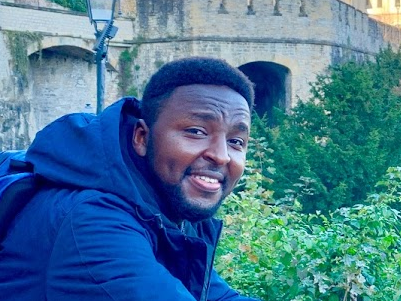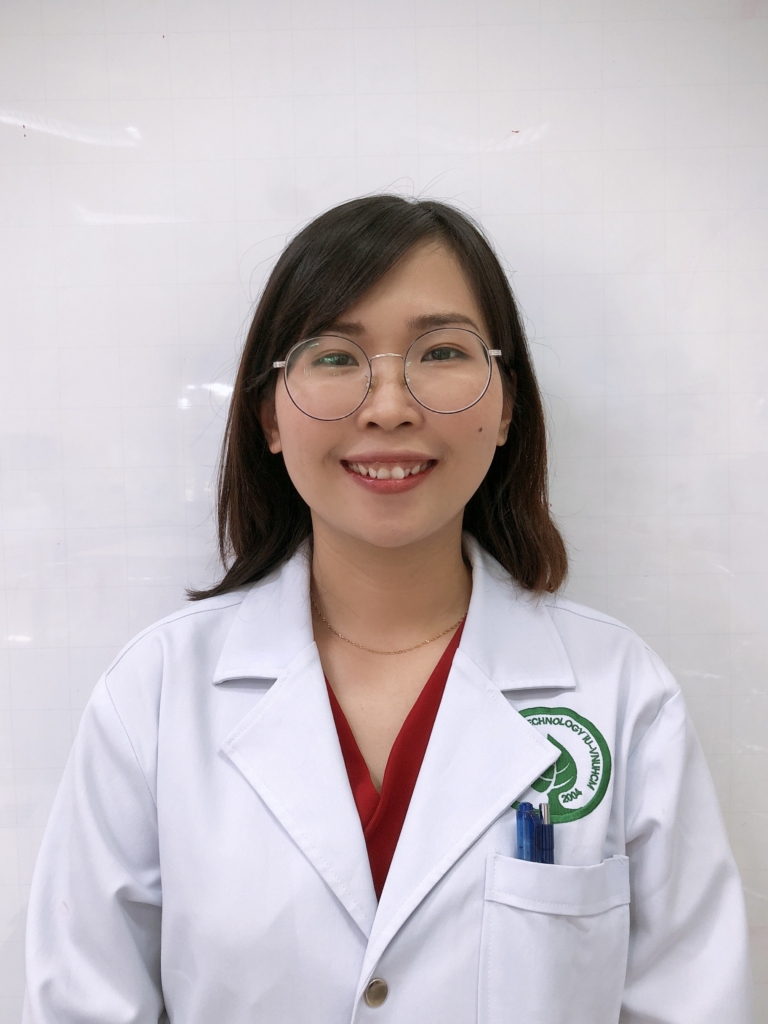Introducing our summer interns, Châu and Kevin!
Over the summer, KYTOS is hosting two interns: Ms. Thị Bao Châu Võ and Mr. Kevin Waweru Mwangi. Kevin and Chau are both enrolled in the Master of Science in Aquaculture at the Faculty of Bioscience Engineering at Ghent University. Our two interns will be working independently on research projects to help aquaculture farmers use agrobiological and biocontrol products, such as pro- and prebiotics, more effectively. Chau will be working on product applications in freshwater recirculating aquaculture systems. Kevin will be researching product applications for open salt water cultivation systems.
➡️ Meet Châu and Kevin!
Kevin Waweru Mwangi

Please tell us something more about your background (education, interests, …)?
I studied BSc in animal health and production which propelled me to be interested in the world of animal health, and specifically microbiology and antimicrobial resistance. In 2020, I got an industrial internship at the international livestock research institute (ILRI) working on antimicrobial resistance in zoonotic bacteria. Currently, I am doing a 2-year Master of Science in Aquaculture at Ghent University under the VLIR-UOS scholarship.
Why did an internship at KYTOS appeal to you?
Kytos is a powerhouse in matters of using novel and cutting-edge technology to analyze the microbiomes in the aquatic environment, thus playing a huge role in improving aquatic health and contributing to One Health. Kytos´s primary goal is to use scientific research to help aquaculture farmers to have healthy production systems. This is in line with my goal of using scientific research to make the world a better place.
What are you looking to learn from the internship?
I am looking forward to gaining knowledge and skills in microbiome analysis from aquaculture production systems. This includes gaining experience in single-cell and molecular analysis of the microbiomes in aquaculture production systems and improving on designing and planning experiments. Moreover, being able to evaluate the outcome of the use of biocontrol products, analyze and interpret microbiome data in the context of the farmers’ objectives. Am also looking forward to being under the umbrella of the mentorship of the Kytos team.
Any achievement you want to reach?
Get more insights about the microbiome in aquaculture and seek to understand ”what makes them tick”. Help Kytos achieve its goal of safeguarding and improving microbiome health. After the internship, I would like to be competent in the analysis of data which includes making figures, statistics and most importantly result reporting.
Farmers have been waiting for decades on microbiome management technologies, where do you see yourself having the biggest impact?
With this internship, I seek to understand how biocontrol products affect the microbiomes in the aquatic environment and I will contribute to helping farmers have well-performing aquaculture systems. The well-detailed research that I will be conducting at Kytos will contribute to the knowledge of the production of open salt water cultivation systems.
Thị Bao Châu Võ
Can you tell us something more about your background?
I come from Vietnam; the country is on the list of the top largest aquaculture product producers in the world. I have a solid aquaculture background with a bachelor’s degree in Aquatic Resources Management from the International University – Vietnam National University; and I am pursuing a master’s degree in Aquaculture at Ghent University thanks to the support from The Flemish Interuniversity Council (VLIR-OUS) ‘scholarship. I am interested in researching aquatic diseases, microbiology, pathogenic mechanisms and the relationship between microbial pathogens and hosts. I believe this understanding allows the disease to be prevented and better aquatic’s animal health management.
Why did the internship appeal to you?
I have some experience working in the academic workplaces; however, all these experiences are for basic research. With the prospect that I can apply my studies to real life, this internship is the chance for me to learn how the research turns out to be successful applications in practice. I am really fascinated by KYTOS’s idea that assessing microbial data to predict the aquaculture systems’ health in order to assist farming. The internship also brings me knowledge about how advanced technology is used in the aquaculture industry.

What are you looking to learn from the internship?
The internship provides me with the chance to boarder my understanding of microbial community monitoring. I also want to improve my data interpretation skills and discover the variety of advantageous techniques applied in aquatic research. Moreover, all experts have their own stories to tell, so I am looking forward to listening and learning from KYTOS’s experts.
Any particular achievement you want to reach?
My goal is to develop environmental-friendly treatments in order to manage the good health of the animals and control the overuse of antibiotics in aquaculture. I believe the more experiences I gain today, the higher chances of success I get in the future.
Farmers have been waiting for decades on microbiome management technologies, where do you see yourself have the biggest impact?
After this internship and my study, I will have gotten experience working as a researcher and know more about the microbiome management overall. It is undeniable that there are several studies and technologies invented and developed every year, however, there are gaps such as academic knowledge, species diversity and feasibility still exist between the research and reality. I see myself not only as the one who works in the research field but also as the one who supports the farmers understanding.
